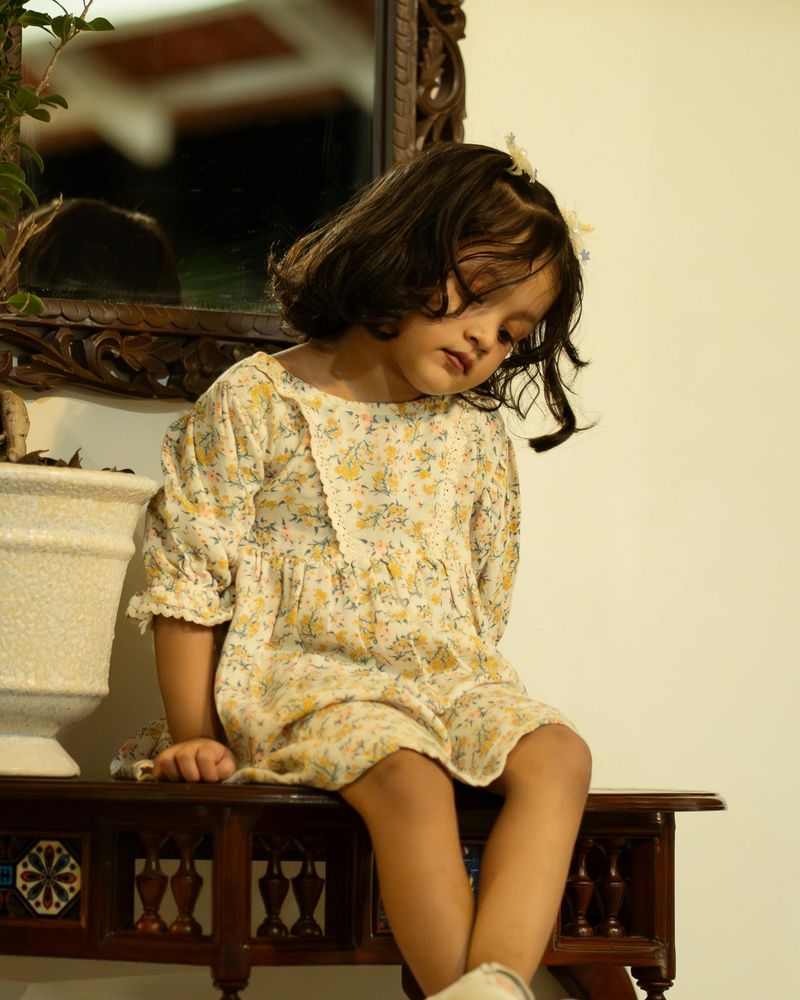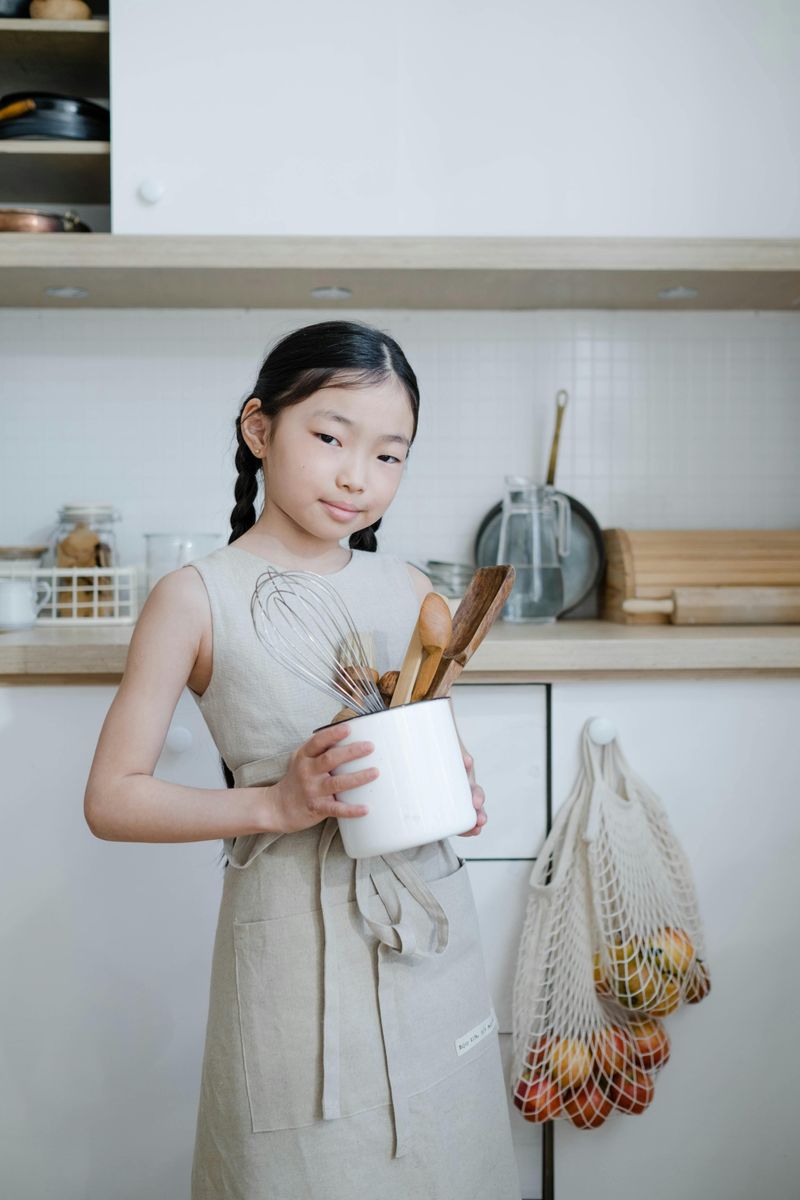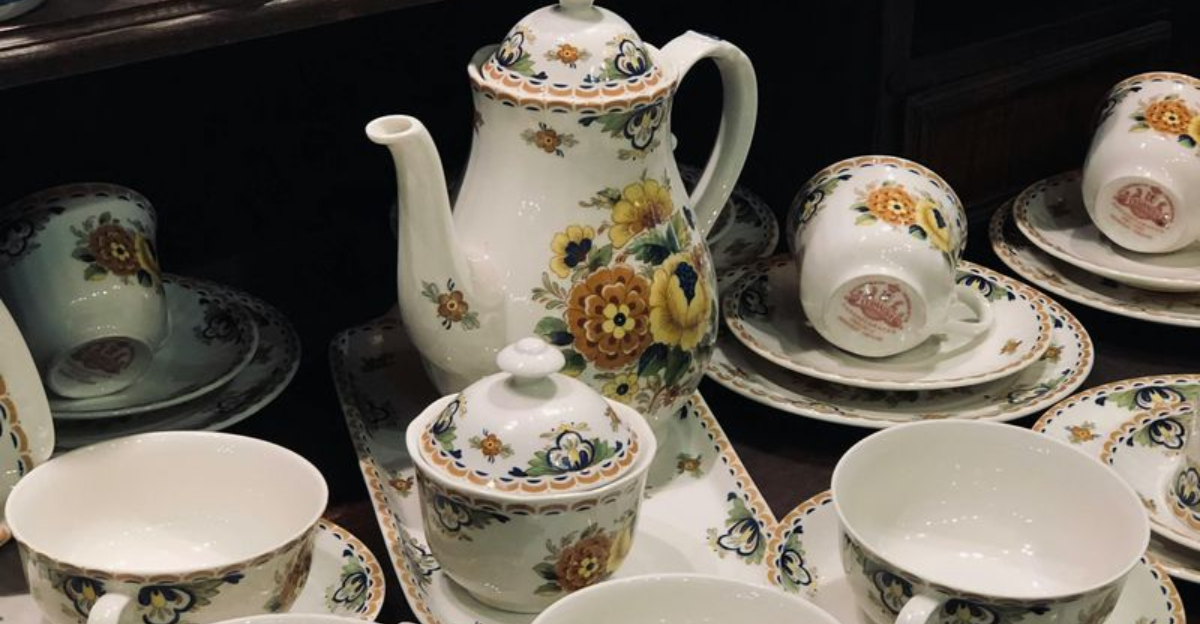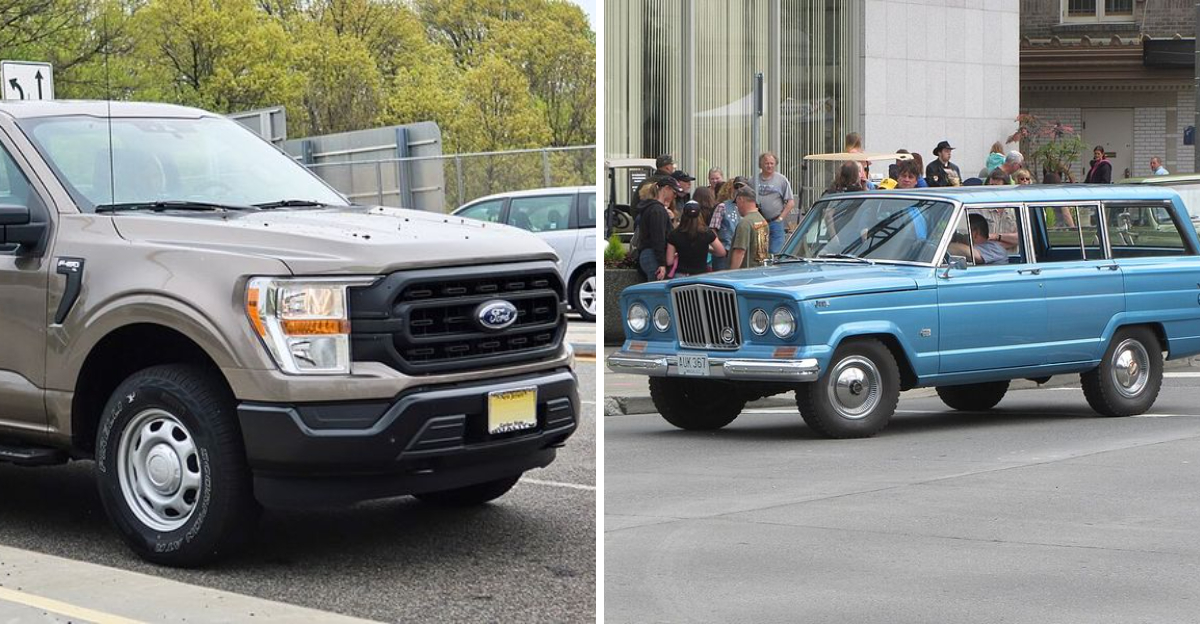25 Iconic 1960s Baby Names That Still Shine Today
Baby names come and go like fashion trends, but some stick around because they just work. The 1960s gave us a treasure trove of classic names that parents still love today.
Whether you’re hunting for a timeless name or just curious about what made the ’60s so special, you’ll find plenty of inspiration here.
1. Susan

Susan dominated the baby name charts throughout the 1960s for good reason. Parents appreciated how it rolled off the tongue while maintaining a sense of sophistication and timelessness.
Meaning “lily” in Hebrew, it carries a gentle botanical vibe that never goes out of style. You’ll find plenty of successful Susans in every generation, proving its lasting appeal across decades and cultures.
2. Gary

Strong and straightforward, Gary became a household favorite during the ’60s boom. Originally derived from a Germanic word meaning “spear,” it packed a punch without being too aggressive or complicated.
Parents appreciated its no-nonsense vibe and easy pronunciation. While it’s less common now, Gary still holds nostalgic charm that makes it perfect for honoring a beloved grandfather or uncle.
3. Deborah

Biblical roots meet modern sophistication in Deborah, a name that dominated the ’60s with grace. Meaning “bee” in Hebrew, it suggests industriousness and community, traits parents valued deeply back then.
Debbie became the go-to nickname, adding a playful twist to the formal version. Whether you prefer the full elegance or the casual shortening, both options remain wonderfully versatile today.
4. Ronald

Presidential and powerful, Ronald carried serious weight during the 1960s naming scene. Scottish in origin, it means “ruler’s counselor,” which probably explains why it felt so commanding yet approachable.
Ron and Ronnie offered friendly alternatives that softened the formality. Many parents chose it hoping their sons would grow into leaders, and honestly, it still sounds pretty impressive on a resume or business card.
5. Pamela

Invented by a poet in the 16th century, Pamela hit its stride during the swinging ’60s. Meaning “all sweetness,” it perfectly captured the era’s optimism and charm without being overly sugary or precious.
Pam became the breezy nickname everyone loved. Its literary origins give it an intellectual edge, while the sound remains soft and feminine, making it a balanced choice that works across different personalities and styles.
6. Douglas

Scottish heritage meets American coolness in Douglas, a name that thrived during the 1960s. Meaning “dark water,” it evokes natural imagery while maintaining a distinguished, professional sound that parents absolutely adored.
Doug provided a casual option that felt friendly and approachable. Whether in the boardroom or on the playground, Douglas adapted seamlessly to any situation, proving its remarkable versatility and enduring appeal.
7. Linda

Spanish for “pretty,” Linda lived up to its meaning throughout the 1960s. It topped the charts earlier but remained incredibly popular, beloved for its simplicity and the lovely meaning parents couldn’t resist.
Short and sweet, it needed no nickname, though Lindy occasionally popped up. Its international appeal meant it worked across cultures and languages, making it a practical choice for families with diverse backgrounds and connections.
8. Kenneth

Scottish royalty inspired Kenneth, which means “handsome” or “born of fire,” depending on the interpretation. The 1960s embraced it wholeheartedly, appreciating its dignified sound paired with down-to-earth accessibility that felt just right.
Ken became the automatic nickname, friendly and approachable. From Barbie’s boyfriend to countless successful businessmen, Kenneth proved it could handle both casual and formal settings with equal confidence and style.
9. Janet

A diminutive of Jane, Janet carved out its own identity during the 1960s. Meaning “God is gracious,” it offered spiritual significance without being overly religious, striking a balance many families found appealing and meaningful.
It needed no shortening, already compact and complete. Janet Jackson later gave it major pop culture credibility, but even before that, it represented reliability and warmth that parents valued in a daughter’s name.
10. Patrick

Irish pride shone through Patrick, which dominated the 1960s with its noble heritage. Meaning “nobleman,” it carried Saint Patrick’s legacy while sounding friendly enough for everyday use, a combination parents found irresistible and charming.
Pat and Paddy offered nickname options galore. Whether you celebrated Irish roots or just loved the sound, Patrick delivered sophistication without stuffiness, making it suitable for boys of any background or family tradition.
11. Karen

Karen, rooted in Danish heritage and meaning “pure,” became a favorite in the 1960s. Its simplicity and clarity made it appealing to parents wanting a name both elegant and easy to use.
Recent internet memes haven’t diminished its vintage charm. Millions of wonderful Karens grew up in the ’60s, and the name still carries that era’s optimism and straightforward honesty that defined a generation’s values.
12. Dennis

Inspired by the god Dionysus, Dennis flourished during the 1960s. Meaning “follower of Dionysus,” it added a touch of mythology to suburban America while remaining approachable and perfectly suited for everyday life.
Dennis the Menace made it even more popular, adding playful energy. Parents loved how it sounded both friendly and professional, working equally well on a little boy’s lunchbox or a grown man’s office door.
13. Cynthia

Greek mythology blessed Cynthia, another name for Artemis, goddess of the moon. The 1960s adored its lyrical quality, which felt both artistic and grounded, sophisticated yet accessible to families from all walks of life.
Cindy became the perky nickname everyone knew. Whether you preferred the full elegance or the cheerful shortening, both versions offered versatility that adapted to different personalities and life stages beautifully.
14. Bruce

Scottish nobility runs through Bruce, which means “from the brushwood thicket.” The 1960s loved its rugged, masculine vibe that suggested strength without aggression, making it perfect for boys who’d grow into capable, confident men.
No nickname necessary, Bruce stood alone proudly. Batman’s alter ego and Bruce Springsteen later cemented its cool factor, but even during the ’60s, parents recognized its timeless, no-nonsense appeal and solid character.
15. Barbara

Derived from the Latin term for “foreign woman,” Barbara reigned as a favorite well into the 1960s. Its timeless elegance conveyed sophistication, hinting at a girl destined to grow into a graceful, accomplished, and respected woman.
Barb, Barbie, and Babs provided nickname variety. Saint Barbara’s legacy added spiritual depth, while the name’s prevalence meant your daughter would fit right in among her peers, never feeling unusual or out of place.
16. Jeffrey

Jeffrey, rooted in Germanic tradition, means “peaceful pledge.” The 1960s loved its versatility, a name that felt both youthful and capable, carrying boys effortlessly from playground games to professional success.
Jeff became the casual go-to nickname. Its double-f spelling added visual interest, while the sound remained crisp and clear, easy to pronounce across different accents and regions without confusion or mispronunciation.
17. Christine

“Follower of Christ” defines Christine, which flourished during the 1960s. Its religious significance appealed to faithful families, while the elegant sound worked for secular households too, offering spiritual connection without being overtly preachy or limiting.
Chris, Chrissy, and Tina offered nickname flexibility. Whether you wanted something formal or casual, Christine adapted beautifully, proving its remarkable versatility across different social situations and personal preferences throughout life’s various stages.
18. Stephen

Greek for “crown,” Stephen carried royal connotations throughout the 1960s. Parents loved its intellectual vibe, which suggested a boy destined for academic success and thoughtful leadership rather than just athletic prowess or popularity alone.
Steve became the friendly alternative. The “ph” spelling added sophistication over “Steven,” though both versions worked equally well, giving families a choice that matched their style and preferences perfectly.
19. Diane

Roman goddess Diana inspired Diane, which captivated parents during the 1960s. Meaning “divine,” it offered celestial connections while remaining grounded and practical, never too fancy or pretentious for everyday American life and casual interactions.
Often used without nicknames, Diane stood complete. Its French pronunciation option added international flair, while the simple spelling kept it accessible, making it perfect for families wanting elegance without unnecessary complication or confusion.
20. Richard

Germanic origins give Richard its powerful meaning: “brave ruler.” The 1960s couldn’t get enough of it, appreciating how it commanded respect while remaining approachable, suggesting leadership potential without arrogance or intimidation that might alienate others.
Rick, Ricky, Rich, and Dick offered nickname abundance. Kings and presidents shared it, giving boys impressive role models. Whether in the boardroom or backyard, Richard adapted perfectly, proving its enduring versatility across all contexts.
21. Michael

Hebrew for “who is like God,” Michael absolutely dominated the 1960s and beyond. Archangel Michael’s protection appealed to religious families, while the strong, masculine sound worked for everyone seeking a name that would never go out of style completely.
Mike and Mikey provided casual options. Its biblical roots, combined with modern accessibility, created the perfect storm of popularity that continues today, making it truly timeless across generations and cultures worldwide.
22. Lisa

Short for Elizabeth, Lisa became its own powerhouse during the 1960s. Meaning “God is my oath,” it offered spiritual significance in a compact package that felt fresh and modern rather than old-fashioned or stuffy like traditional versions.
No nickname needed here. Its brevity made it perfect for parents wanting simplicity without sacrificing style. Mona Lisa connections added artistic flair, while the sound remained sweet and approachable for girls of any personality type.
23. David

Biblical king David inspired millions of 1960s parents. Meaning “beloved,” it carried religious weight while sounding completely contemporary, never feeling dated or too traditional for modern families seeking meaningful names with historical significance and depth.
Dave and Davey softened the formality. Its universal appeal crossed cultural boundaries effortlessly, working in virtually any language or country. Whether you wanted Old Testament gravitas or just a solid, reliable name, David delivered perfectly.
24. Mary

The ultimate classic, Mary remained incredibly popular throughout the 1960s. Meaning “bitter” or “beloved,” depending on interpretation, it carried profound religious significance as Jesus’s mother, making it meaningful for countless Christian families seeking traditional values.
Simple and timeless, Mary needed no embellishment. While it’s less common now, its vintage charm makes it ripe for revival. Compound names like Mary Ann or Mary Kate offered creative variations that honored tradition while adding personal flair.
25. James

Hebrew origins give James its meaning: “supplanter.” The 1960s loved it just as much as every other decade, appreciating its presidential gravitas combined with everyday wearability that made it suitable for any boy, regardless of background.
Jim, Jimmy, and Jamie provided options. Kings, saints, and countless successful men shared it, offering boys impressive role models. Whether formal or casual, James adapted seamlessly, proving why it remains perpetually popular across all generations.






